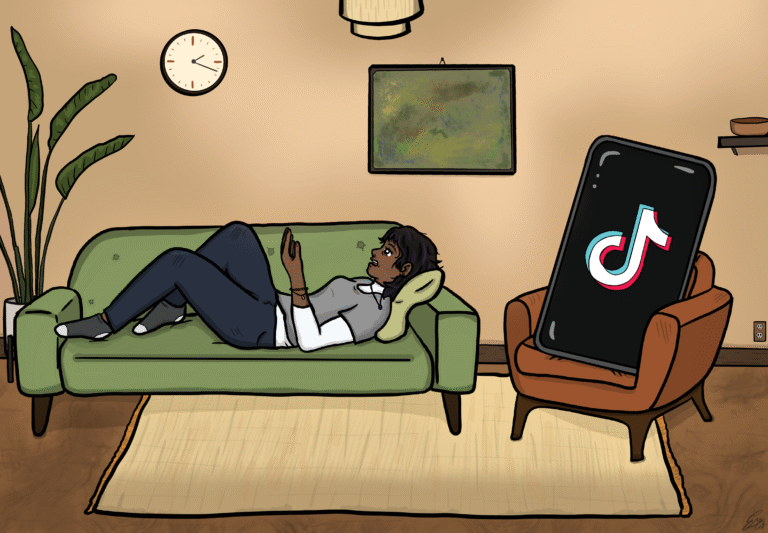
Well, I finally did it. I got a new therapist. It’s available 24/7, requires no insurance and doesn’t even make me fill out those awkward intake forms. Its name? TikTok. And let me tell you, my For You Page is a never-ending therapy session. Only instead of a couch, I’m curled up in bed at 2 a.m., staring at my phone, wondering if I have attachment issues (which I do).
Therapy via short-form video sounds ridiculous, but one day I came across a video titled “How to Self-Soothe When You’re Spiraling” and thought, “Hey, I’m always spiraling.” From there the algorithm took over, feeding me healing techniques and hacks that bandaged these life-long open wounds.
It all began with the “healing your inner child” trend. This trend delves into the different traumas we endure growing up – having divorced parents or being an only child – which surprisingly manifest in our adult behaviors. If the remedy is to watch movies all day and eat a tub of ice cream, then count me in.
TikTok therapy bolsters another hot trend: trauma dumping. Users casually unpack their deepest childhood wounds mid “Get Ready with Me” videos, applying concealer like it’s another step in the healing process. Talking about your trauma to millions of strangers on the internet is a TikTok-approved healing technique. No need to spew those random life stories at $100/hour when there’s a free app in your hands. Tik Tok can’t judge you. And even if it does, just turn those comments off.
Often, we all become licensed therapists in the comment section, offering our own medical expertise through heart emojis.
The final boss of this quasi-online therapist is neurodivergent TikTok, a place that finally explained why I can’t text back but will think about you all day. The ADHD hacks, the “signs you might be autistic” videos, the eerie yet validating breakdowns of why my brain refuses to function like a normal person’s. It’s unsettling, sure, but it’s also the first time I’ve felt truly understood. Where my outlandish thoughts don’t feel so ridiculous. It’s a strange kind of comfort — I feel at peace. Like I belong.
And where did I get all this information? Well, I have expert therapists, doctors and, at times, random people giving me a solution to the troubles I didn’t know I had.
These 30-second videos can feel much more effective than an hour-long therapy session. They give me quick, digestible coping strategies and validate things I’ve felt confused about my whole life.
But let’s be real, TikTok is not an actual therapist. It’s an algorithm that doesn’t care about my well-being, just my watch time.